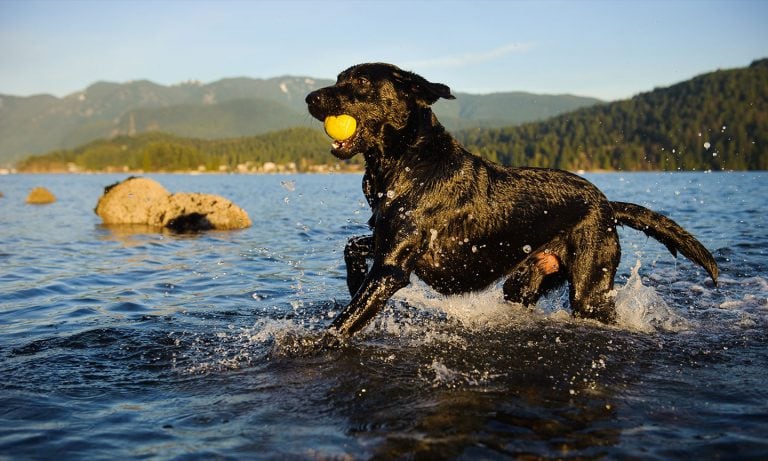Chihuahua vs Labrador Retriever

Breed Snapshot
Best For
Equal parts affectionate, charming and mischievous, Chihuahuas are small, adaptable dogs who thrive in households (small and large!) with no other dominant pets. This toy breed's ideal pet parent provides companionship, care and lots of...
Equal parts affectionate, charming and mischievous, Chihuahuas are small, adaptable dogs who thrive in households (small and large!) with no other dominant pets. This toy breed's ideal pet parent provides companionship, care and lots of attention.
Chihuahua Temperament
Chihuahuas are charming little scamps with an eye for mischief and a sense of bravery that outsizes their physicality. They’re playful pups who enjoy a good romp or game, even though it may not last long (depending on their energy level). And they love to snooze on laps an...
Chihuahuas are charming little scamps with an eye for mischief and a sense of bravery that outsizes their physicality. They’re playful pups who enjoy a good romp or game, even though it may not last long (depending on their energy level). And they love to snooze on laps and cuddle—that is, after all, what they’re bred to do.
They like a lot of attention and are quite portable. But even though they’re easily carried, they do still need to learn how to walk on their own and be able to engage in normal dog behaviors, like sniffing, exploring and playing. In other words, don’t pop them in a purse or a stroller and tote them everywhere—unless, of course, it’s somewhere risky with lots of feet that could hurt a tiny paw, like an airport or street festival.
The Chihuahua dog breed is said to resemble a terrier with their demeanor and can become quite feisty, especially if they feel threatened. Some sites report that the Chihuahua bite force is 3,900 pounds per square inch (psi), but those so-called Chihuahua facts are wildly inaccurate, when a lion is only at 600 psi. In truth, Chihuahuas usually inflict no more than a Level 1-3 bite, with no puncture deeper than half the length of one of their canine teeth.
To help your Chihuahua puppy overcome a nipping or protective tendency, socialize them by safely and slowly introducing them to new people and places from the get-go and start training when they are young. Early training will also help this smallest of dog breeds become wonderfully friendly and receptive to all members of the family, including other pets.
Chihuahua Traits

Breed Snapshot
Best For
The Labrador Retriever is one of the most popular dog breeds in America, known for their friendliness, intelligence and outgoing nature. These high-energy, athletic dogs require ample exercise and thrive in active households.
Labrador Retriever Temperament
Cheerful and animated, this large dog breed has stamina and energy to spare, able to keep up with your family and all your activities. You’ll want to funnel that energy into positive outlets, like outdoor activities and training. And thanks to their high intelligence, learning commands and tricks com...
Cheerful and animated, this large dog breed has stamina and energy to spare, able to keep up with your family and all your activities. You’ll want to funnel that energy into positive outlets, like outdoor activities and training. And thanks to their high intelligence, learning commands and tricks come relativity easy for them. Labrador dogs love having a job to do and excel at things like agility courses and, just like their name implies, retrieving items. In fact, their superior intelligence is why they often make great assistance dogs, working as therapy or service animals.
A people-pleaser, Labrador Retrievers have a pleasant personality and love interacting with humans. Get ready to be showered with lots of affection! They also easily make friends with dogs and other animals, including cats, although not all cats are as excited to meet them as they are—a Lab’s large size and high energy level can be a bit intimidating. Slow and controlled introductions to other family pets will help make the transition go smoothly. Considering the staying power of the Labrador dog breed’s popularity, it’s a safe bet your Lab will fit right in with the all the loved ones you choose to introduce into their life.
While they’re generally good-natured, like any dog breed, Labs may develop aggressive tendencies if they don’t receive proper training or have experienced abuse. Addressing any biting issues early on, providing proper socialization when they are puppies (aka safely exposing them to lots of new people, places and things) and working with a professional dog trainer can help avoid behavioral issues when they get older.




